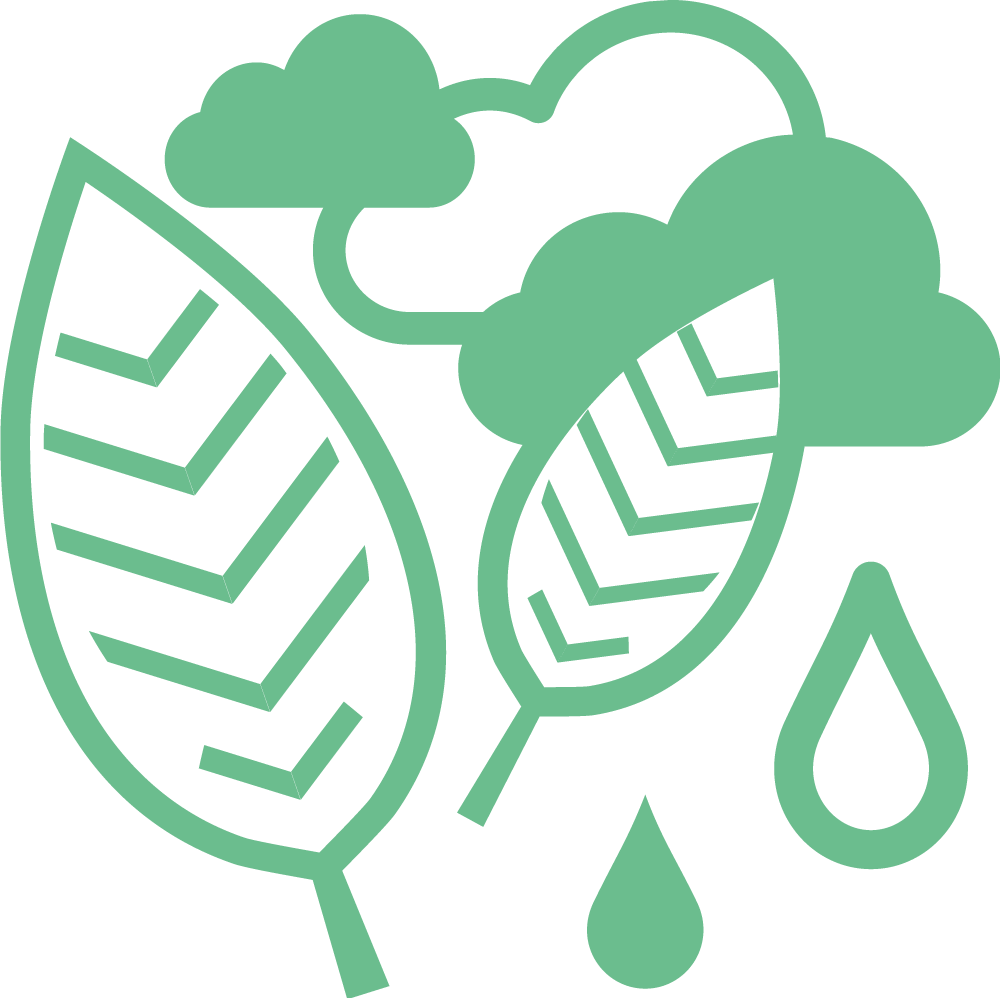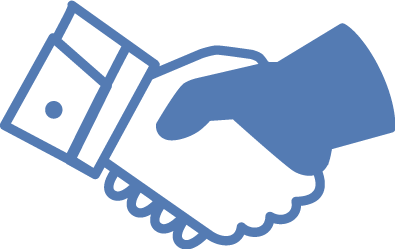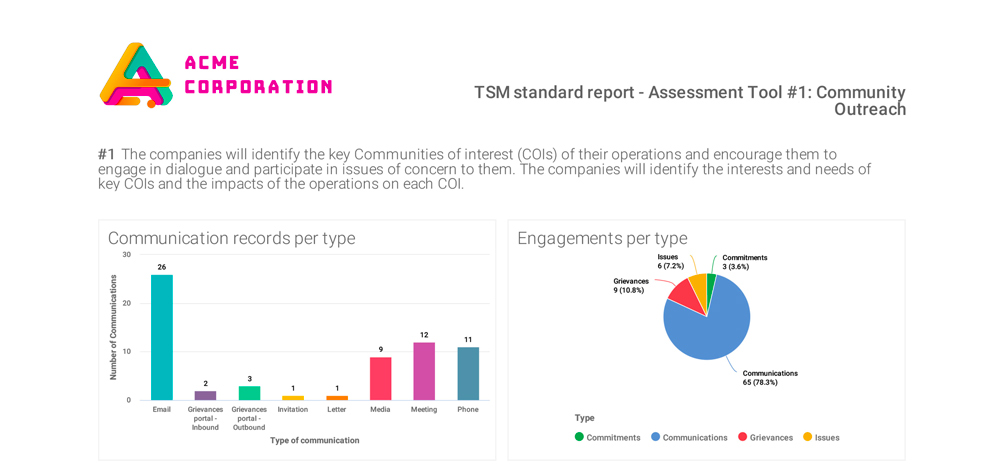With demand for essential minerals continuing to rise rapidly, the global mining industry is experiencing tremendous growth. In 2021, the world’s 40 largest mining companies reported record results, including a 32% increase in revenues.
According to PWC, the future success of the mining industry will depend on its ability “to play a leading role in the global transition to clean energy while continuing to generate significant value for stakeholders.”
Internationally, Canada is doing well with its Towards Sustainable Mining initiative, which aims to increase productivity in the extractive sector while ensuring that this is done in the most socially, economically, and environmentally responsible manner possible.
This is where modern, fit-for-purpose tools come into play. Borealis software is an adaptable solution that helps organizations track performance and implement essential follow-ups in order to carefully manage sustainable development commitments and stakeholder relations.
Towards Sustainable Mining
The Towards Sustainable Mining (TSM) initiative is a Canadian program that supports mining companies in managing environmental and social risks.
Launched in 2004, TSM became a requirement for membership in the Mining Association of Canada (MAC) in 2006. In 2013, the commitment was expanded to include “demonstrating continuous improvement over time.”
Adherence to this initiative is only mandatory in Canada, but many MAC members are voluntarily adhering to its standards even when operating outside the country. Since 2015, Finland, Argentina, Botswana, the Philippines and Spain have adopted the Canadian program, a testament to its relevance and effectiveness. Other countries are reportedly considering joining as well.
Values and Guiding Principles
TSM is based on three core values that must support all of a mining company’s activities, from exploration to development to production to recycling.
Accountability
Rigorous assessments are conducted at the mine sites themselves. Every three years the results are verified by qualified experts.
Transparency
The performance of mining companies, based on a series of key indicators, is published on the websites of the relevant associations so that all interested persons or entities – including stakeholders – have access to detailed information on their commitment to sustainability.
Credibility
TSM is overseen by the Community of Interest (COI) Advisory Panel, an independent, multi-interest group whose mandate includes fostering dialogue between mining companies and their stakeholders.
With TSM, mining companies are committed to demonstrating their sense of responsibility to social, economic and environmental issues with honesty and integrity at all times.
Performance Protocols
In order to transform mining companies’ commitments into concrete actions, TSM has established eight performance protocols grouped under three areas of importance: Communities and People, Environmental Stewardship, and Energy Efficiency. These protocols are assessment tools based on performance indicators that measure the quality, scope, and effectiveness of a mine’s management systems. These assessments are intended to provide the public with accurate information on the industry’s performance in important environmental and social areas.
Borealis software makes it easier to monitor objectives, activities, communications and results, and to share this information with all concerned individuals and groups.
Communities and People
1. Indigenous and Community Relationships
This protocol assesses these relationships according to four indicators: identifying affected individuals and groups, maintaining good relationships with them, taking a collaborative approach, and establishing a community feedback system to address questions and concerns.
Good practice: Make a firm commitment to obtain the free, prior and informed consent of indigenous peoples directly affected by a project.
Borealis not only allows you to create a complete register of stakeholders, but also to quickly group these people into categories based on factors like position, relationship with the organization, membership in a group, location, etc. Reports can be generated in just a few clicks to extract data about the number of communications that have taken place, the commitments made with stakeholders (Indigenous and otherwise), the number and nature of the issues raised, and the number of stakeholders who are affected. The creation of a community feedback system is simplified by our Grievance and Feedback Portal, a natural extension of our Grievance Management module. This ensures that the company has a robust grievance management mechanism in place that provides stakeholders with a neutral way to submit feedback via the web, where they can anonymously voice their concerns. This system is based on the classic complaint management model, and includes an escalation and external referral process. The mechanism seamlessly integrates with the software, which allows for effortless reporting.
2. Crisis management and communications planning
Under this protocol, mines are required to establish a crisis management and communications plan. They must then review it regularly and update it as needed. The plan must include annual training and simulation exercises.
Good practice: Establish company-wide crisis management teams.
To simplify communication with stakeholders who need to be alerted in the event of a crisis, Borealis offers a Smart Communications Add-on that quickly targets the people and groups who need to be informed (e.g., the owners of land parcels beside a waterway that may have been contaminated). The software also keeps track of these communications in one place to ensure timely follow-up.
3. Safety and Health
This protocol requires mining companies to be report on their health and safety management, prevent incidents, train employees and contractors, monitor and report on performance, and establish “zero incident” objectives.
Good practice: Implement a training program that includes a needs analysis and training records management.
Borealis centralizes your data in one place, allowing you to assign deadlines, track reporting (to the public, authorities, etc.), and ensure that safety instructions and other communications are received and understood. Example: the user guide for a new machine needs to be read and understood by 34 people in the company. Borealis allows you to record details about when the information was sent and received, employee responses, individual evaluations, etc. This data is incredibly valuable in the event of an audit. The software also makes it easy to find out who should receive the results of a particular performance evaluation.
4. Preventing Child and Forced Labour
This protocol differs from others in that it addresses issues that mining companies must AVOID.
They must not have anyone under the age of 18 perform potentially dangerous work, or hire anyone under the age of 15. Forced labour must not be used, and where there is a high risk of forced labour, they must implement processes to monitor supply chains and relationships with recruitment agencies.
Good practice: Avoid unreasonable restrictions on employees’ freedom of movement in relation to the mine site
Borealis allows organizations to establish a secure whistleblowing process. Our Grievance and Feedback Portal provides an anonymous channel for anyone who witnesses prohibited practices to disclose the situation without suffering negative consequences.
Environmental Stewardship
5. Tailings Management
This protocol makes firm commitments to tailings management, including the implementation of a tailings management system, the development of contingency plans, the appointment of a responsible officer, an annual audit, and the production of a comprehensive guide to better manage risks.
Good practice: Ensure that all aspects of tailings management meet the requirements of the MAC Tailings Guide.
6. Biodiversity Conservation Management
With this protocol, the mining company commits to managing biodiversity by applying the mitigation hierarchy, identifying significant biodiversity aspects, and reporting on its biodiversity performance.
Good practice: Consult with affected communities on conservation programs and activities.
7. Water Stewardship
This protocol requires mines to commit to good water stewardship, implement a management system, cooperate with other water users, and set targets to measure their performance.
Good practice: Develop a water monitoring program that includes risk reduction measures related to water quantity and quality.
Data from the three Environmental Stewardship protocols can be centralized in Borealis using the Environmental Monitoring module, which is a natural extension of our stakeholder management solution. Borealis allows organizations to monitor indicators related to biodiversity, water quality management, and tailings management. More importantly, it simplifies the process of reporting these results to affected stakeholders and those who have raised concerns. Using Engagement Plans, it is very simple to inform municipal elected officials of the results of water analyses, or report to environmental groups about the efforts that were made and the results obtained from a plan to safeguard an animal species at risk.
Energy Efficiency
This protocol commits mining companies to ambitious climate actions, climate change management, target setting and reporting of performance results.
Good practice: Develop a comprehensive system to reduce energy consumption and GHG emissions.
This protocol can also benefit from the functions offered by Borealis with respect to scheduling and monitoring of actions, communications, and evaluations.
With nearly 20 years of experience in the mining industry, Borealis understands the importance of pursuing a sustainable mining model that considers its social and environmental impacts. Our advisors have significant experience working with the standards around stakeholder management, such as ISO 26000 and AA1000.
We’re always listening to our clients in the mining industry to improve our product, and we’re proud to offer the most advanced stakeholder management software available to meet your TSM data sharing needs.
As software developed specifically for stakeholder management, Borealis does an exceptional job for the Communities & People portion of TSM, and it’s equally useful for other protocols – especially when it comes to monitoring communications.
Whether your organization is adhering to TSM or simply committed to making their mining practices more sustainable, we’re sure that our SRM solution can help you make a positive impact on communities. Contact us today to request a demo.






